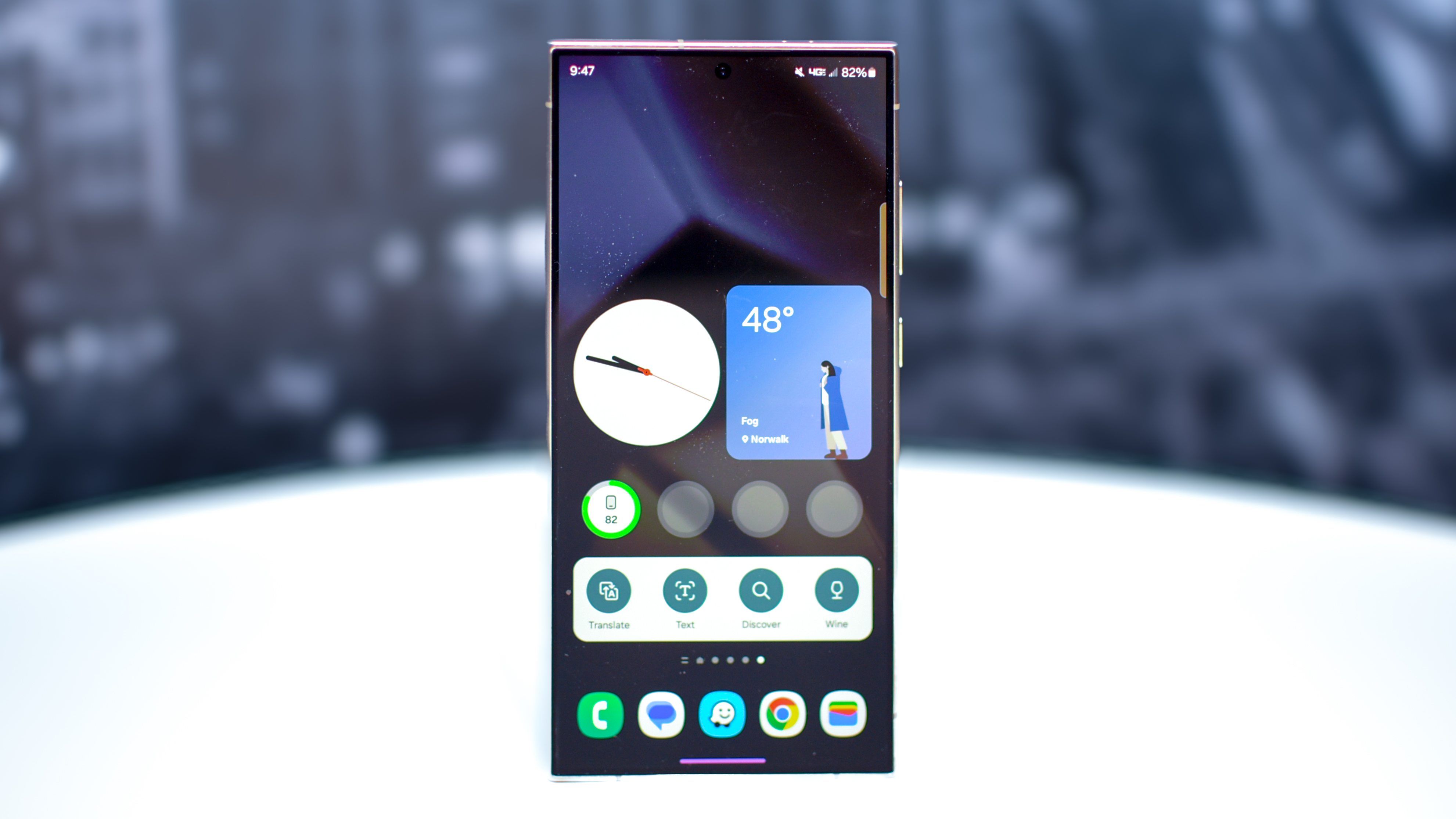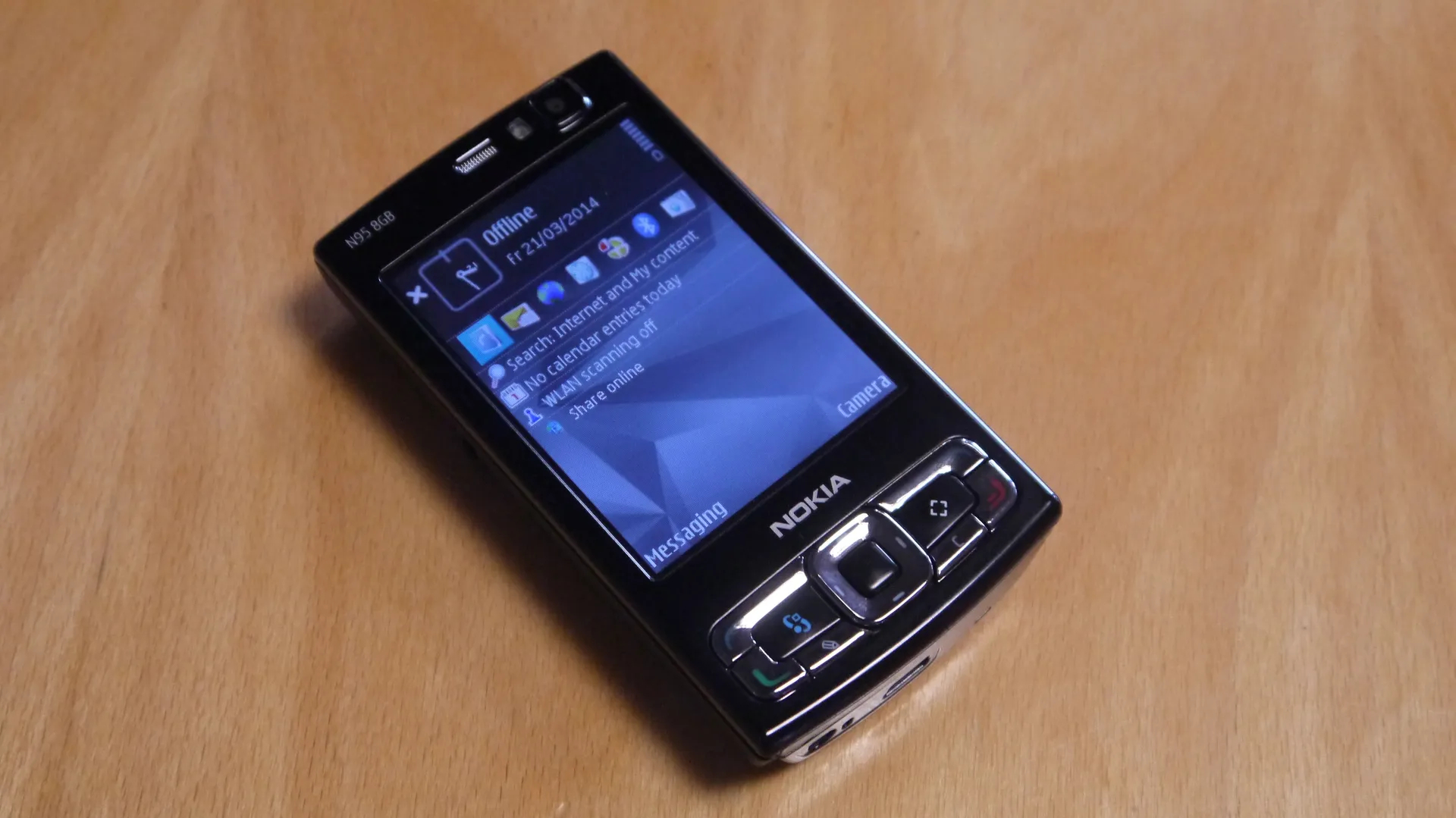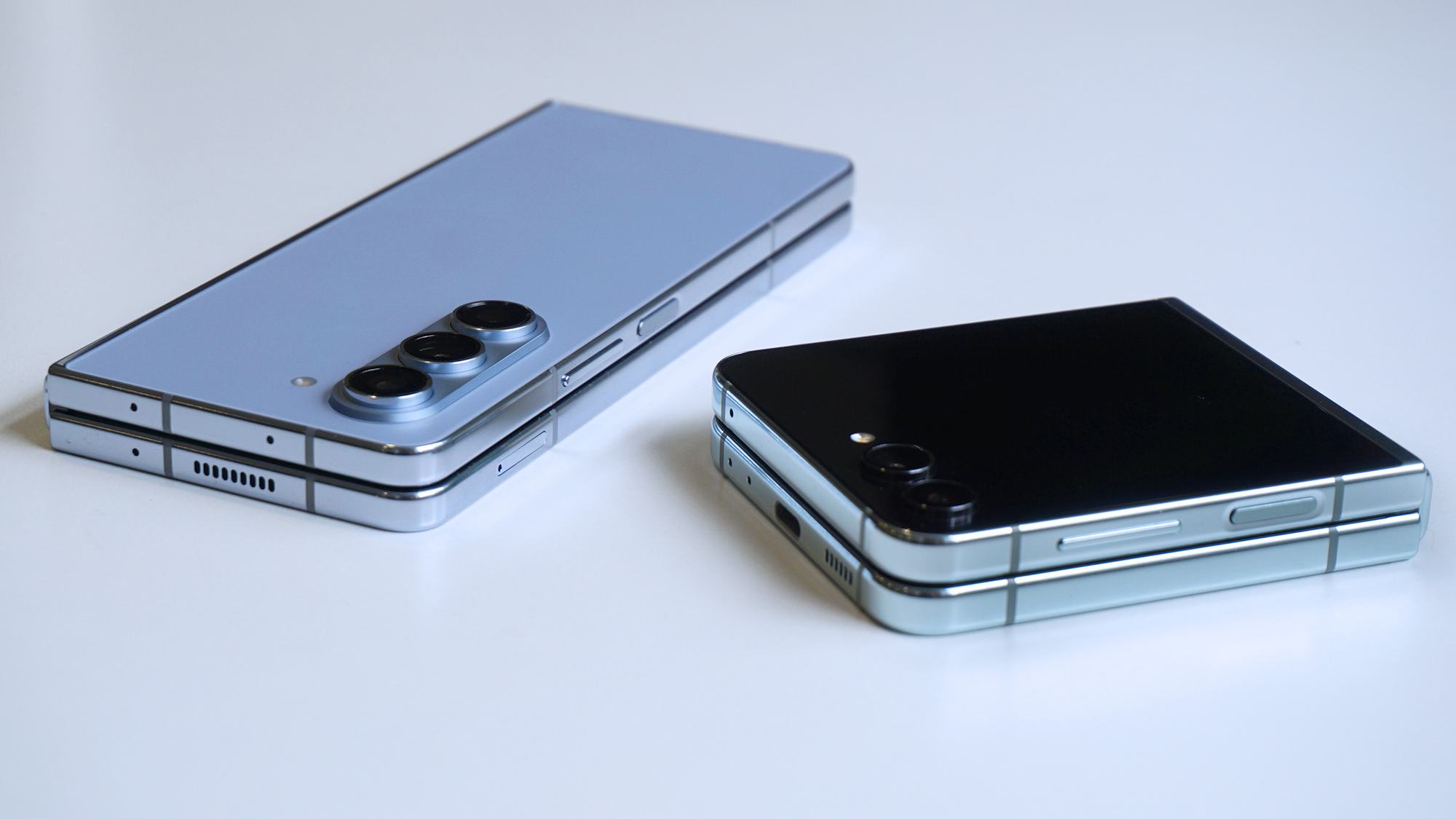Samsung was the earliest iPhone competitor, but its software is stuck in the past
Remove the TouchWiz from the Galaxy

Sign up for breaking news, reviews, opinion, top tech deals, and more.
You are now subscribed
Your newsletter sign-up was successful
Among all the major smartphone makers, Samsung saw the threat from Apple’s iPhone earlier than most. Among the biggest phone makers of the day (2007), Blackberry execs dismissed Apple as a consumer play, and Nokia stuck to its aging and unfriendly software. Only Samsung changed course quickly to meet the iPhone.

Unfortunately, Samsung thought the iPhone was all about features. It never understood that the iPhone’s real advancement was making those features so incredibly easy to use with intuitive software.
The first Samsung competitor to the iPhone was the silly little Samsung Instinct, a feature phone running Samsung’s TouchWiz interface, with a better-than-average web browser, music player, and even simple apps. It was terrible, especially compared to the iPhone. But it looked like an iPhone, if you squinted just right. It was a poor replacement, but it checked most of the same boxes.
With Android came a win, but it was the wrong win
Samsung’s first Android phones were equally terrible. Before the Galaxy came along, we got the Samsung Behold, which was the worst smartphone I ever used. It stacked that TouchWiz feature phone interface on top of Android. On a spreadsheet of features, the Behold could match the iPhone row-for-row, but actually using the phone was a terrible ordeal.
When the Samsung Galaxy phones came along, they represented the first win for Samsung, but this victory only pointed the company more firmly in the wrong direction. What made the original Galaxy phone great, especially compared to the iPhone, was the OLED display. Apple didn’t adopt OLED for its iPhone display panels until the iPhone X. Samsung’s OLED Galaxy phones gave the company a win on paper, and that’s the only win that matters to Samsung.

Why is OLED better? First of all, OLED looks fantastic, especially on a small display where you can see the difference in contrast up close. Colors pop on an OLED display, and because black areas are completely dark, the contrast level approaches infinity. Second, OLED provides some minimal battery saving, since the dark parts of the screen are not drawing any power. In practice, it’s a small advantage, maybe 5% per day, but it’s measurable.
Samsung had a spec win. It won with a feature the iPhone wouldn’t match. It still used terrible software, still a version of the same terrible TouchWiz interface that it used on the Samsung Instinct feature phone. Even with hardware that could compete with the best, Samsung was hobbled by software that was born in the days when phones were plastic toys.
Sign up for breaking news, reviews, opinion, top tech deals, and more.
Fifteen years of spec improvements and bad software
Over the next 15 years, Samsung would follow the same pattern. It would aspire to beat Apple in terms of specs and hardware features. It would win on paper. It would launch phones with more and more.
First we got phones with larger displays. We got a stylus built in, even though we all knew styli were dead. We got more cameras, zoom cameras, then space cameras. We got glass that curved, then glass that folds. Features upon features. No improvement to the software.

In all those years, Samsung never made its software better, not better than Apple. We heard about every superlative spec, every clock-beating feat, but as much as reviewers griped and complained about bad, confusing, and overwrought software, Samsung never budged. It never improved significantly.
Samsung was able to give up glossy plastic phones, removable batteries, home buttons, and everything else, just to beat the iPhone. Somehow, it never cared enough about improving its software. Or else, it never thought beating Apple at software would be possible.
Maybe Apple is winning because ... it's better?!
There are many reasons why Apple has the huge market share it claims, and Samsung lags far behind in the US. I’d say that Apple simply makes a superior product. The iPhone, and I mean every iPhone from the least to the best iPhone, is better than the Samsung Galaxy S24. Unless you are buying the absolute best Galaxy S24 Ultra, you are buying an inferior phone.
The reason is software. Apple’s iOS 17 software isn’t just better, it is an entire experience. The features and the hardware and the software all work together seamlessly. Sometimes it works so well it can be frightening.

Samsung’s Galaxy phones are good in spite of the software, just barely. Its best Ultra phones are so packed with useful features that we must forgive the terrible interface, clogged menus, and overwhelming home screens. However, if you don’t find those features useful, or if you never find those features at all, the Samsung Galaxy S24 Ultra won’t be a phone you enjoy, unlike the iPhone.
Whatever the Justice Department decides to do about Apple, I hope Samsung turns a blind eye, because its problems have nothing to do with Apple’s market power. Samsung has had the same problems for years, and if it expects sympathy for falling so far behind, it must fix its terrible software first.

Starting more than 20 years ago at eTown.com. Philip Berne has written for Engadget, The Verge, PC Mag, Digital Trends, Slashgear, TechRadar, AndroidCentral, and was Editor-in-Chief of the sadly-defunct infoSync. Phil holds an entirely useful M.A. in Cultural Theory from Carnegie Mellon University. He sang in numerous college a cappella groups.
Phil did a stint at Samsung Mobile, leading reviews for the PR team and writing crisis communications until he left in 2017. He worked at an Apple Store near Boston, MA, at the height of iPod popularity. Phil is certified in Google AI Essentials. His passion is the democratizing power of mobile technology. Before AI came along he was totally sure the next big thing would be something we wear on our faces.